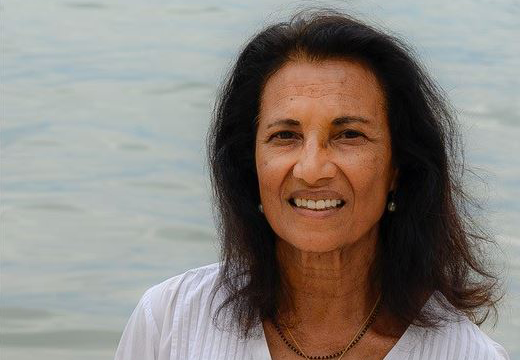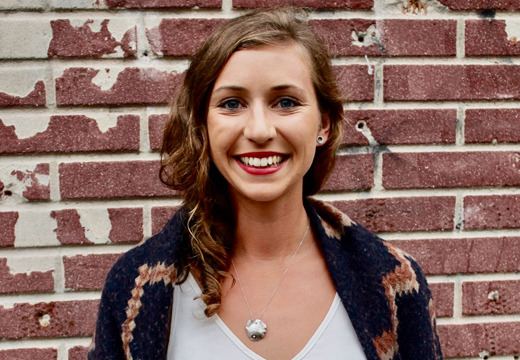Shakuntala Thilsted, Jenna Stoner Join Standards Oversight Committee
The Global Seafood Alliance is pleased to announce the addition of two new members to its 12-member Standards Oversight Committee (SOC).

Dr. Shakuntala Thilsted, global lead for nutrition and public health at WorldFish and this year’s World Food Prize Laureate, and Jenna Stoner, aquaculture program director at Sustainable Fisheries Partnership (SFP), joined the SOC on May 24, 2021.
Both Thilsted and Stoner are highly regarded in their respective disciplines, and their addition will only benefit the SOC’s work, said Best Aquaculture Practices (BAP) Standards Coordinator Dan Lee.
“Our oversight committee will gain a lot from their expertise as our program progressively targets sustainable development goals,” said Lee, who manages the SOC.

In May, Thilsted was awarded the prestigious 2021 World Food Prize for her ground-breaking research in developing holistic, nutrition-sensitive approaches to aquatic food systems. She played a key role in the development of the WorldFish 2030 research and innovation strategy, “Aquatic Foods for Healthy People and Planet.” She is a member of the steering committee of the High Level Panel of Experts on Food Security and Nutrition (HLPE) of the United Nations Committee on World Food Security and vice chair of the UN Food Systems Summit 2021: Action Track 4 – Advance Equitable Livelihoods. Shakuntala holds a PhD from the Royal Veterinary and Agricultural University in Denmark and an honorary doctorate from the Swedish University of Agricultural Sciences.
As SFP’s aquaculture program director, Stoner provides leadership, management and strategic insight into SFP’s aquaculture strategy. She has more than 10 years of experience on market-based conservation programs with a predominant focus on sustainable aquaculture production and consumption. Stoner holds a master’s of marine management from Dalhousie University and a BSc from the University of Victoria.
“It’s a real pleasure to be joining the Standards Oversight Committee at this time. The BAP standards have been a cornerstone to improving farm-level management practices in aquaculture for nearly 20 years, and yet we recognize there is still a ways to go to addressing cumulative impacts of the rapidly growing aquaculture industries around the globe,” said Stoner. “The BAP standard review process and the SOC are robust mechanisms that ensure the standards are evolving to address emerging issues, lead in best practices and continue to deliver a credible way for the market to support better management practices.”
The SOC comprises members with broad stakeholder representation — one-third conservation, one-third academia and one-third industry. The SOC directs the drafting of the BAP standards by technical committees and reports its recommendations to the GSA board of directors for final approval. With assistance from the BAP standards coordinator, the SOC also coordinates revisions and other aspects of standards development and improvement.
SOC members serve three-year terms, with a maximum of four terms. In July 2020, four new members joined the SOC, including Patrick Blow, aquaculture manager for Marks & Spencer; Simon Bush, professor and chair of the Environmental Policy Group at Wageningen University; and Lukas Manomaitis, U.S. Soybean Export Council (USSEC) aquaculture program lead technical consultant-Southeast Asia. (The other new member has since stepped down, leaving two vacancies filled by Thilsted and Stoner.)
They replaced Sebastian Belle, executive director of the Maine Aquaculture Association; Estelle Brennan, head of sustainability UK at Labeyrie Fine Foods; Steve Otwell, professor emeritus at the University of Florida’s Department of Food Science and Human Nutrition; and Michael Tlusty, associate professor of sustainability and food solutions at the University of Massachusetts-Boston’s School for the Environment. Belle, Brennan, Otwell and Tlusty were among the original 12 members of the SOC when it was established in 2008.
About GSA
The Global Seafood Alliance is an international, nonprofit trade association dedicated to advancing responsible seafood practices through education, advocacy and third-party assurances. Through the development of its Best Aquaculture Practices and Best Seafood Practices certification programs, GSA has become the leading provider of assurances for seafood globally. The organization’s work addresses the full spectrum of responsibility, from environmental responsibility and social accountability to food safety. Established in 1997 as the Global Aquaculture Alliance, GSA is headquartered in Portsmouth, N.H., USA. To learn more, visit www.globalseafood.org.



